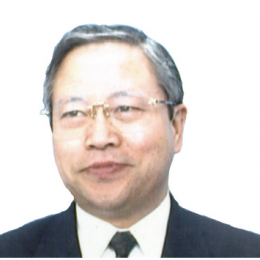MULTIPLE TRIPS TO JAPAN
QUESTION 1
Dear Atty. Miyoshi,
I just want to ask how many times a person can come into Japan. My sister had been to Japan four times already. On the fifth time in applying for a visa, she was denied. The purpose for her visit to Japan is to take care of her nephew. Is there a limit in applying for a tourist visa?
Please advise me. Thank you.
Clair
ANSWER 1
I hope you understand that there is now “Temporary Stay” in accordance with Japanese visa regulation, but not tourist visa, which you mentioned. In general, visa officer of Japanese Embassy/Consulate is always supposed to examine the following items when they would accept a Temporary Stay visa;
- an applicant’s age,
- sex,
- the existence of regular employment,
- money in hand,
- a stay schedule in Japan,
- purpose for visit,
- the existence and contents of the violation record/history in the past,
- a guarantor’s existence in Japan,
- a guarantor’s occupation,
- a guarantor’s income and property,
- the relationship between an applicant and a guarantor
- a guarantor’s violation record/history in the past
A visa officer can issue a visa only if there is no circumstance or restriction that an applicant has never been enlisted the “Black List”, which has always been informed/sent from Japanese Immigration.
In the case of the people who belong to a country of visa exemption agreement, such as the United States, does not have restriction the times of entry. It means that they can visit Japan the number of times without visa, as you know.
On the other hand, when he/she belongs to countries, which figured with many illegal workers and Non-visa exemption agreement, it is very restrictive to the issuance. Such as being, the standard of a short-term stay visa is not uniform.
I think that your sister’s case has fully been evaluated and examined, as her application had been accepted no less than 4 times in spite of carrying out a reason, a “family visit” only. However, it seems to be considered that it is sufficiently by visa officer. Then, in the case of a family visit, she should make up the special document for her application, which includes special reason that is “the existence and present serious condition of the person who takes care of her nephew” for example.
On the other hand, you should draw up your statement that you stated, “I am impossible to take care of my child because of my sick. I do want make her taking care of my child.” It will be considered as a humanitarian case.
QUESTION 2
Good afternoon! I am now 29 years old, born in Manila. My father is Japanese and my mother is a Filipina. They got married in Manila in 1982 but my father did not register their marriage into Japanese Embassy. I just want to know how I can get Japanese citizenship now. Unfortunately, my parents had been separated for twenty years ago (in 1992). Now, I got married to a Japanese four years ago and divorced on May last year. My visa is now permanent resident. Is this permanent resident visa annulled after divorce? And, how can I get Japanese nationality?
Ruby
ANSWER 2
I understand that you are worrying about your visa after you divorced with Japanese husband. Please do not worry about it. It is not supposed to be revoked or annulled by the Immigration authority because of your divorce.
As you see, all of Japanese has to register to municipal office within the stipulated period when one’s identification changed in accordance with the Registration Law. What is the meaning of one’s identification change? For example, it includes birth, marriage, adoption, acknowledgment, death and so on. Therefore, your Japanese father also owed the obligations to report his marriage with your mother who is Philippians, even if he is living outside of Japan. How did he do, and how should he do at that time about 30 years ago?
First, he should go to Japanese Embassy/consulate, fill in their marriage report and submit it to the Embassy/consulate. This report is automatically sent over to the municipal office where located his domiciled (Honseki-chi in Japanese).
Second, he should send it to municipal office directly by mail. Then, this report surely registered automatically into Family Registered Book (Koseki-Tohon in Japanese) at the municipal office. However, he had never done it, then, it means that your mother got unmarried with Japanese husband, and, it also does not mean that she had Japanese nationality since she had never apply for the naturalization. Therefore, she had never registered in Koseki-Tohon until present time because of your father’s failure.
It is so called “Marriage Of Fact” like your parent’s marriage which is not the “Marriage of legal”. It is very important point for you. Because, in accordance with Japanese Nationality Law, you would be Japanese when you were born in the Philippine while your parent marriage were “Marriage of legal”, even if your father missed to report your birth and your parent separated for twenty years ago.
Now, please be advised that you have any chance to live in Japan in possessing of the Immigration Status “Permanent Resident”. Moreover, you will be granted Japanese nationality only if you will apply for and can prove such evidence and fact that you were born between Japanese/Philippian before parent’s marriage showing father’s Koseki-Tohon, parent’s marriage certificate, your passport, your marriage certificate/birth certificate and other related documents which are required from the Ministry of Justice.
I am always welcome to support and solve your problem.
 Office name: Miyoshi International Legal Counsel Office
Office name: Miyoshi International Legal Counsel Office
Telephone/Fax (Japanese/English): 042-339-8013(office), 090-14360-4107(Mobile phone)
E-mail: miyoshi@ipcworld.co.jp or joshua-galasha@mvg.biglobe.ne.jp (Japanese/English) OR p-digest@ipcworld.co.jp(English/Tagalog)
Website: www.phildigest.jp
Nearest station: Keio Nagayama by Keio line or Odakyu Nagayama by Odakyu line in Tama-city, Tokyo
Working hour/day: 09:00-18:00/Monday-Saturday (except holidays)
Comments are closed.